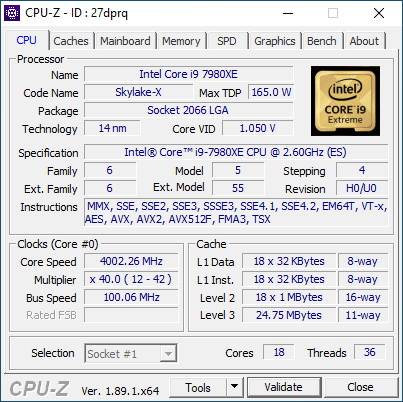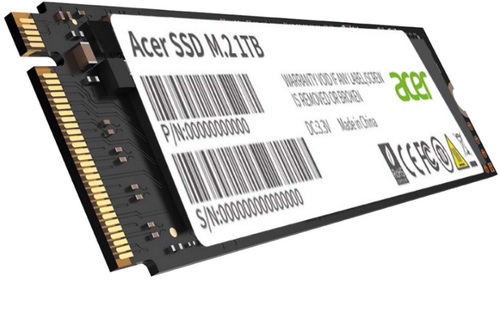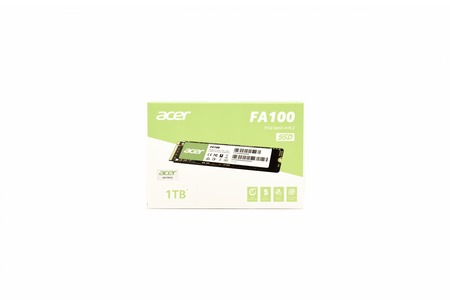INTRODUCTION

One of the things I’ve always liked about the electronics industry is that no matter your budget (price range) you can always find what you're looking for. The same of course applies for every hardware component for the PC including SSDs which are now all but divided into 4 main categories, SATA 2.5", M.2 SATA, M.2 PCIe NVMe Gen3x4 and M.2 PCIe NVMe Gen4x4. Still as expected M.2 PCIe NVMe Gen3x4 models are considered the jacks of all trades since they clearly offer the best bang for your buck (performance, capacity and cost) and so it's really not a surprise that this is what most manufacturers have decided to support, at least for now. Acer recently started offering their very own storage media (via BIWIN) and today with me i have their very first M.2 PCIe NVMe Gen3x4 SSD model, the FA100 1TB.
Acer branded storage products are designed and manufactured by BIWIN Storage Technology company, a leading maker of quality flash memory, DRAM memory and solid-state drives (SSD storage devices). Founded in 1995, BIWIN focuses on providing global customers with high-quality storage products and specializes in the research, development, manufacturing and sales of memory chip application products.
The FA100 line of M.2 PCIe NVMe Gen3x4 SSDs by Acer is currently available in 128GB/256GB/512GB/1TB/2TB capacities and is based on the DRAM-less Shasta+ (IG5216) 4-channel NVMe v1.4 NAND flash controller by Innogrit which this time is paired with 3D TLC NAND Flash memory (probably by Micron judging by the serial number). Now just like many other DRAM-less NAND flash controllers to make up for the lack of onboard DRAM the Shasta+ (IG5216) controller uses the Host Memory Buffer (HMB) architecture which basically takes up a fraction of your PC's system memory to cache mapping tables (remember that this feature is only supported on versions of Windows 10 launched from 2019 and beyond). This combination of hardware and software/firmware allows the 1TB variant of the FA100 to reach data transfer speeds of up to 3300MB/s in reads and 2700MB/s in writes (this is actually the fastest model of the FA100 line) with a TWB (terabytes written) of 600TB (70TB for the 128GB model, 150TB for the 256GB model, 300TB for the 512GB and 1200TB for the 2TB model). Needless to say, the Innogrit Shasta+ (IG5216) supports various technologies like LDPC (low-density parity check) error-correction with SRAM ECC, programmable RAID, smart cache, AES 256-bit encryption, SHA3 256, ONFI 4.1 and Toggle 4.0. Last but not least Acer reports an MTBF of 2 million hours and covers the entire line with a 5-year limited warranty.
SPECIFICATIONS AND FEATURES

PACKAGING AND CONTENTS
A small product picture is located at the front of the box right next to the company logo and above the main features and capacity.
At the rear of the box, we find the product specifications and several certifications just over its serial numbers and barcodes.
Just the quick start guide and a small screw are included in the box (aside the FA100 SSD of course).
THE FA100 1TB
The FA100 1TB is a single-side NVMe v1.4 M.2 NVMe Gen 3x4 SSD which follows the typical 2280 factor (22mm in width and 80mm in length).
On the top side of the PCB and under a thin sticker we find the Shasta+ IG5216 NAND flash controller by Innogrit and 4 3D TLC NAND flash modules.
Just a company logo takes up the other side of the PCB.
TEST BED


TESTING METHODOLOGY
After almost 13 years of testing solid state drives, I’ve concluded that it's almost impossible for any single benchmark suite to accurately measure their performance and that's why in certain benchmark suites we see amazing read/write performance numbers with some drives while in others things are quite different. The reason behind this is that some benchmarking suites are configured to read and write random chunks of data while others read and write constant (sequential) ones. So that's why i always use a very wide selection of benchmarking suites including AIDA64, HD Tach RW, HD Tune Pro, Crystal Disk Mark, Sisoftware Sandra Pro, AS SSD, IOmeter and ATTO. To get the most accurate results each test gets repeated a total of 6 times with the average performance numbers recorded into our charts*. Also, as of February 25th 2015 our results will also include the Storage Networking Industry Association’s (SNIA) IOMeter tests. These tests include a 12 Hour write test used to “simulate” performance degradation over time and a mixed workload test which basically shows what you can expect when using an SSD continuously for roughly two hours. Unfortunately, due to the time required for these tests we repeat them a total of 3 times and not 6 as the above.
Many people have made inquiries about our charts in the past so once again please do keep in mind that the Charts have the average performance numbers of each drive recorded and not the peak (highest) ones. Also, although every single one of these programs can help potential buyers choose the right drive for their needs you should also remember that from any kind of benchmark up to real world usage the gap is not small (and usually most differences will go unnoticed by most people). All tests were performed in a fresh Windows 10 Pro x64 installation complete with every update up to the date of this review.
* Since November 2018 the SSD comparison charts have been divided to 2.5” and M.2 models to reduce their growing size.
** Unless stated otherwise the Ryzen 9 3950x based Test Rig used for M.2 Gen 4 SSD reviews is not located in the lab.
*** As of January 2021, for Gen 3x4 models I’ll be using the Core i9-7980XE test rig (after numerous tests the up to 6% difference in read & write performance compared to the i7-6700 system simply wasn’t enough to justify having an extra test rig around).
TEST RESULTS - AIDA64 / ATTO


TEST RESULTS - HD TACH RW / HD TUNE PRO


TEST RESULTS - SISOFTWARE SANDRA PRO / CRYSTAL DISK MARK


TEST RESULTS - AS SSD / IOMETER


TEST RESULTS – IOMETER SNIA

CONCLUSION

The Acer FA100 is yet another low/mid-end M.2 NVMe Gen3x4 SSD line based on a DRAM-less NAND flash controller by one of the less established players, Innogrit (the only other SSD with this controller in my charts is the Lexar NM620). This is not to say that it’s not good since it does behave exactly the way you’d expect by one such SSD model but overall, it’s not as powerful as most other Gen3x4 models in the charts. The good news is that Acer (or better yet BIWIN) reports higher than average TBW numbers for the entire line and that’s always something I welcome when it comes to SSDs. Thermal throttling was quite evident during all SNIA tests so always try to pair your SSD with a good heatsink if possible.
Entry level products are defined a lot by their cost and with a current price tag set at USD124.99 inside the USA (Amazon.com) and 135.41Euros inside the EU (Amazon.de) the Acer FA100 1TB M.2 PCIe NVMe Gen3x4 SSD is priced roughly the same as its direct competition (which means it’s still just a tad higher than expected inside the EU). Overall, the Acer FA100 1TB may not bring anything new to the table but it should easily cover casual users and even gamers with its performance and since it delivers as advertised it deserves the Golden Award.

PROS
- Good Performance (Up To 3300MB/s Read & 2700MB/s Write)
- Endurance (600TBW)
- 5 Year Limited Warranty
- Price (USA)
- Brand Name (For Some)
CONS
- Thermal Throttling (During SNIA Tests)
- Price (EU)

 O-Sense
O-Sense

















.png)

